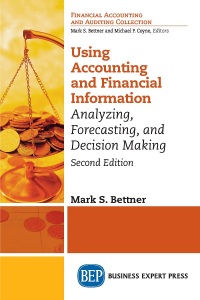Question
Facts Your client, Mary Russell, is a 36-year-old Australian citizen who was born in Canada and who has lived in Australia since her family relocated
Facts
Your client, Mary Russell, is a 36-year-old Australian citizen who was born in Canada and who has lived in Australia since her family relocated here when she was 5 years old. Mary became an Australian citizen shortly after the move to Australia and she has lived and worked in Australia up until 30 June 2020. Mary has lodged tax returns in Australia for many years and for her tax returns up to and including the 2019-20 tax year she has declared that she is an Australian tax resident.
Mary had resided in her family home in Perth, with her spouse, Bill, and two children up until 30 June 2020. Marys employer, CDE Engineering, offered her an opportunity to work in Qatar, initially for two years, commencing on 1st July 2020 until 30th June 2022 and she accepted this offer. Bill decided to stay in Perth with their children for the two tax years when Mary was overseas (2021 and 2022), as he did not want to cease his employment in Australia unless he could find similar employment in Qatar. In July 2020, Bill took 3 weeks of annual leave from his employment with an Australian bank and all the family members spent 3 weeks in Qatar to locate suitable accommodation for Mary, that would be large enough to accommodate the whole family, should they also decide to relocate to Qatar for the duration of Marys overseas employment. Bill had some informal conversations with potential employers in Qatar, but none of these led to any offers of employment for him. Mary resided in a serviced apartment block in Qatar called Luxury Towers. In 2020-21 she occupied a 3-bedroom apartment as she was hopeful that her family might decide to relocate to Qatar. In July 2021, she realised that her family preferred to stay in Australia, so she moved to a 2-bedroom apartment in the Luxury Towers complex, where the lease cost was 25% less than the 3-bedroom apartment. At the same time, she has some small furniture items shipped from Australia to Qatar as she was anticipating an extension of the initial two-year employment contract.
While overseas, Mary maintained her Australian joint bank account and share investments, as well as her joint ownership of the family home with Bill. Mary also retained her Medicare card, but she has not required any medical treatment in Australia since July 2020. In the 2021 tax year, Mary visited Australia on three occasions and the duration of these visits were: 10 days, 8 days and 11 days, respectively. In the 2022 tax year, Mary visited Australia twice, the first time for 20 days and the second time for 25 days. On all five visits, she stayed at the family home in Perth and pursued the same recreational and social activities as she had before relocating to Qatar. On each occasion that Mary visited Australia, she completed an incoming passenger declaration at Perth airport and ticked the box to indicate that she was a resident returning to Australia. On each occasion, Marys assumption was that the question related to her residence status for immigration purposes and that question was of no relevance to whether she was a tax resident.
In 2020-21 and 2021-22, Mary received her salary for her work undertaken in Qatar in an account with a bank located in Qatar. Bill and the two children did not visit Qatar again after the 3 weeks the family had spent there in July 2020.
On 1 July 2022, Mary was offered an extension of the two-year employment contract, but decided that she wanted to spend a year travelling in Europe as the work had been demanding and she needed a break before returning to Australia. Her travel plan is to visit 10 different countries in Europe during the tax year, spending 4 to 8 weeks in each of them. Mary is hoping that the Australian Taxation Office will not consider here to be a resident of Australia for tax. Mary does not plan visiting Australia at all during the 2022-23 tax year in order to increase her chances of being a non-resident.
Mary does not claim to have a complete understanding of Australias tax residence rules and she has, therefore, sought your advice on the tax residence implications of the move to Qatar and the subsequent travel in Europe. She prefers to be considered a non-resident, as it is her understanding that, if this is the case, she would not be taxable in Australia on her foreign-source salary.
Required
Write an advice letter to Mary explaining the law on this tax residence issue in two parts (a) and (b). Your advice letter should refer to relevant sources of law (as well as ATO advice, where appropriate).
In part (a) of your letter explain to Mary what her tax residence status is in the 2020-21 and 2021-22 tax years as well as the implications of being either a resident or non-resident during those two tax years.
In part (b) of your letter explain to Mary what her tax residence is likely to be based on her plans for the 2022-23 tax year.
As well as providing your advice to Mary, your letter should also set out any additional questions for her that are relevant to the tax residence issue. Specifically, is there any additional information that you require to provide more comprehensive advice?
Step by Step Solution
There are 3 Steps involved in it
Step: 1

Get Instant Access to Expert-Tailored Solutions
See step-by-step solutions with expert insights and AI powered tools for academic success
Step: 2

Step: 3

Ace Your Homework with AI
Get the answers you need in no time with our AI-driven, step-by-step assistance
Get Started


